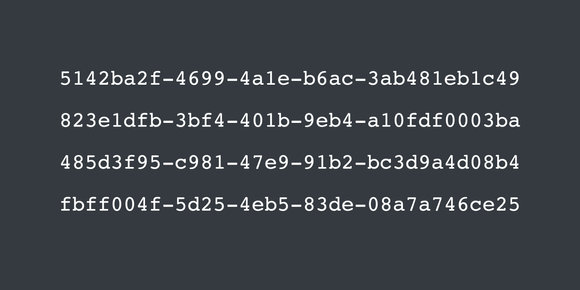
Sometimes you need to turn a stable string ID into a stable number ID, and it's relatively easy to do in Bash.
I recently had the need to generate a deterministic number from a string ID in Bash, in order to generate a semi-random port number. The idea was to take some base number (e.g. 10,000) and then add a generated number in some predetermined range (e.g. 0-9,999) to get a final port number.
Here is a Bash function that uses MD5 to help generate a number:
# @param {string} $1 String to hash to a positive number
stringsum() {
echo "md5sum,md5" | tr ',' '\n' | while read -r cmd; do
if [[ -x "$(command -v "${cmd}")" ]]; then
num=$(( 0x$(echo "$1" | command "${cmd}" | cut -d ' ' -f 1 | head -c 15) ))
[[ $num -lt 0 ]] && num=$((num * -1))
echo $num
return 0
fi
done
return 1
}It tries to use md5sum and then md5, in that order, to be macOS compatible in case coreutils isn't installed.
Here are a few examples:
$ stringsum "foo"
953363684511530718
$ stringsum "bar"
870736763127995456
$ stringsum "hello world"
501465446843089483In my original use case, because I wanted numbers in a clamped range, I used the typical number % (max - min + 1) + min formula with a minimum of zero:
$ echo $(( $(stringsum "some ID") % 10000 ))
8315
$ echo $(( $(stringsum "another ID") % 10000 ))
1185You can read more about arithmetic expansion in Bash on The Linux Documentation Project .





